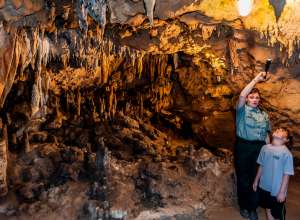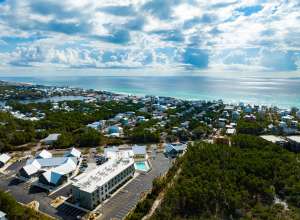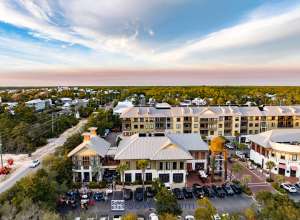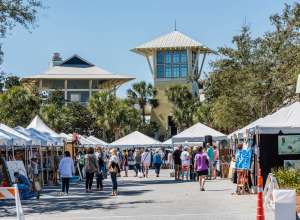Story
Make a Difference SoWal - Create Wildlife Habitat in Your Backyard!
July 3, 2020 by SoWal Staff

All South Walton backyards can be a gathering place for birds, butterflies, frogs, squirrels and many more types of local wildlife.
You can attract native species by offering food, water, cover and space for them to raise their young, and your yard will be transformed into a welcoming habitat for wildlife. The Florida Fish and Wildlife Conservation Commission (FWC) is introducing Backyards and Beyond, a campaign challenging Floridians to make a difference and have fun by creating a refuge for wildlife in their own backyard.
“Imagine your backyard as a place where butterflies are attracted by flowers, songbirds are gobbling up seeds and berries, and frogs, bats and lizards are eating mosquitoes and other insects,” said Jerrie Lindsey, FWC’s director of Public Access Services. “Your efforts to create wildlife habitat at home will have a positive impact because animals need places to live beyond our wildlife management areas. Backyards and Beyond is also a great opportunity for you and your family to enjoy watching wildlife.”
Five easy ways to become involved in Backyards and Beyond:
- Turn your yard into a diverse wildlife habitat by adding native plants. A variety of native trees, shrubs and plants will provide natural food and cover for wildlife.
- A flowering native plant or shrub, for example, can provide nectar and pollen for butterflies and other beneficial insects, which in turn may be a meal for birds, lizards and frogs.
- Attract native wildlife to your yard by providing the four basics: food, water, cover and enough space for raising young. By doing so, we increase the number and variety of species that visit our yards, improving our chances to observe them more closely.
- Document wildlife activity in your backyard. Submit photos via iNaturalist to Florida Nature Trackers projects, and even create a species list for your own backyard.
- Go beyond your backyard. Invite family and friends to explore Florida’s outdoors at wildlife management areas, local and state parks, state and national forests, and national wildlife refuges. Use Florida Nature Trackers to document what you see.
People who create a wildlife refuge in their backyards will contribute to conserving Florida’s wildlife and habitats. By documenting animals observed in their backyards, they also generate valuable information. FWC biologists will be able to see the wildlife photos submitted to Florida Nature Trackers and use the data to help direct their efforts to research and manage native species throughout the state.

Remember, wild animals do not need supplemental feeding from people. Naturally-occurring insects and native plants with nectar flowers, edible fruits, nuts and seeds provide nourishment for most butterflies, birds and small animals. Pet food, corn and other supplemental feed can encourage unwanted visitors. Need help getting started? Explore the Backyards and Beyond website for more information on how you can get involved.
What if you live in an apartment, townhouse or condominium — and don’t have a backyard? You can still participate. Plant native flowers in containers on your front steps, on a balcony or in a window box. Work with neighbors to add native plant life to shared spaces like playgrounds, parks and other open areas in your development or community. Get children involved by bringing Backyards and Beyond to groups such as the Boy Scouts, Girl Scouts or a school, church or community youth group or homeowners association. No matter where you live, you can make a difference.



















